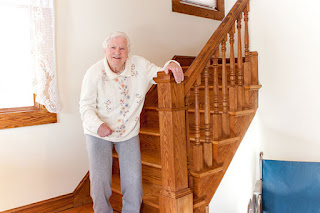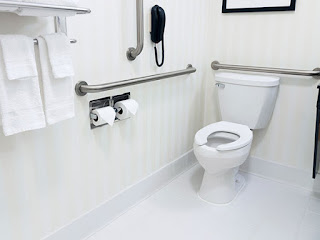Why are Falls Especially Devastating to the Elderly?
While falls are certainly never a joy for younger individuals, their impact on seniors is certainly made worse by a number of different factors. Everything from muscle weakness, osteoporosis, loss of vision, and other common changes associated with the aging process not only makes falls more likely, but also increases the instance of injury and other damaging effects following the fall itself.Medications are another common culprit that often leads to falls, as are common behaviors of elderly individuals. Unfortunately, many seniors attempt to do some of the same tasks that they once performed with ease. Things like climbing ladders, mowing the lawn, gardening, lifting heavy objects, and the like can easily cause a fall and subsequent injury. Other contributing factors to falls by seniors can include alcoholism, poor diet, and environmental issues such as poor lighting and uneven flooring.
How Can Falls be Prevented?
Knowing what factors increase the risk of falls is the first step to facilitating their prevention. Most falls can happily be prevented by being aware of the behavioral, environmental, and biological changes most seniors might be experiencing. Recognizing their limitations is incredibly important, as is asking for help when the situation warrants it. The need to feel independent is certainly understandable, so it can often be difficult to ask for assistance, which is why family and friends should take the initiative and offer to help when it's needed.Seniors who are looking to avoid falls can also make certain changes in their lifestyle. Examples include:
- Exercising more frequently
- Eating a wholesome, healthy diet
- Reducing their alcohol consumption
- Going to the doctor for regular checkups
- Discussing the side effects of any and all medications with their physician
- Eliminating hazards in the home
- Using canes, walkers, and other devices when needed
When the occasional assistance by family and friends is no longer sufficient, hiring an in-home caregiver can be a good option. With in-home care, the senior receives the care they need while still retaining the independence and confidence of remaining within the home and community they know and love. An in-home caregiver can provide assistance with a number of non-medical tasks including housekeeping, meal planning, cooking, errand running, and other chores. Caregivers can also monitor the individual's home environment to make sure that the area is as conducive to safe living as possible. To learn more about the many benefits an in-home caregiver can provide, contact Visiting Angels today.


No comments:
Post a Comment
Note: Only a member of this blog may post a comment.